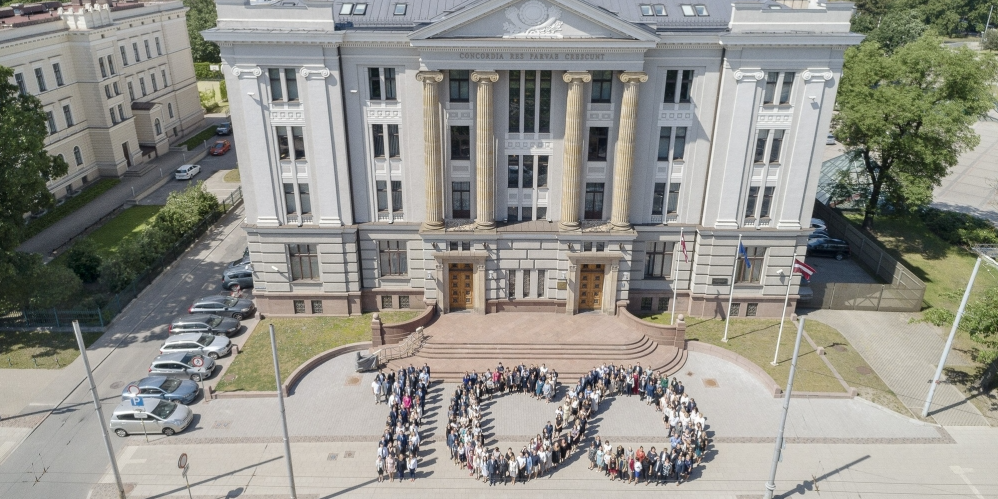
What Can a Young Diplomat Expect to Achieve in Today’s World?
Diplomacy is a genuine force for good. As a Latvian Foreign Service officer, I want to be a part of it. Here are my aspirations.

Diplomacy is a multifaceted and versatile tool of statecraft that allows one to achieve a wide variety of goals — from narrow objectives related to processes within a diplomatic mission to broader strategic aims involving multiple diplomatic missions or government institutions. As a young practitioner of diplomacy in the Latvian Foreign Service, I find it useful to keep in mind the mode in which diplomacy is being conducted — as an instrument of maintenance, influence or crisis-prevention — in order to set realistic goals.
When considering diplomacy as an instrument of maintenance, I think of preserving the status quo within a diplomatic service, embassy or, more broadly, in relations between states. It’s about safeguarding certain order, norms and values in the state of affairs of an institution, usually for the benefit of the interested party performing the action. However, more often than not in recent times the status quo is being challenged both within organizations and globally by dissenting groups with questionable agendas and reasoning.
Within organizations, the challenge comes from the members of a diplomatic service or other governmental institutions that see diplomacy and the Foreign Service as outdated, too rigid and a waste of resources, compared to lines of work with more tangible outcomes. Globally, in international relations we have seen dialogue and civil-society discourse, but also democracy breakdown, as a result of pressure from agitated social groups that congregate on social-media platforms and in private chat rooms, discussing conspiracy theories and propagating false claims about the global order.
In both cases, I hope to use diplomacy and my skills in listening to people and empathizing with their concerns to show the value of drawing on history, experience and common values to generate solutions to our common problems. Through dialogue, I’d like to find a way to improve the institutions where we work and to show that the Western model of democracy is the best solution that can give a voice to the largest number of people willing to cooperate to ensure societal prosperity.
When considering diplomacy as an instrument of influence, I think of one of the most popular definitions of diplomacy as getting the other side to do what you want by persuading it that doing so is in its own interest. In other words, you seek to align the interests of the sides. While there are many strategies to influence another party, including exchange of favors, bargaining and threatening, the most effective one is co-opting the other side into your worldview.
This has been the basis for the most successful international organizations, including the United Nations, the World Trade Organization, the World Bank and the European Union, which are based on the ideas of state sovereignty, liberal democracy and broad adherence to principles of market economy and human rights. Co-opting has been the preferred strategy of the United States since World War II, although the global reach of the U.S. military has loomed as well.
Co-opting becomes a challenge when an alternate worldview emerges from other states, such as China and Russia, particularly in economic relations and human rights. As a diplomat, I hope to contribute to finding a way to integrate the opposing worldviews where possible by showing common ground and shared interests, mostly in fields of science and medical research, climate change, general principles of social well-being and space governance. If possible, I’d also like to aid efforts to change the anti-competitive and discriminatory practices of states with opposing worldviews.
Diplomacy as an instrument for crisis-prevention is about bringing to the table two or more parties to negotiate on matters of concern that risk escalating into a conflict with a detrimental impact on both sides. This is underpinned by skills in negotiation, mediation and peacemaking, and the ability to find balanced solutions to complex disputes, where no side is prepared to back down. Those skills are at a premium, considering the many current violent conflicts around the world, including those in Syria, Yemen, Ethiopia and the one between Israelis and Palestinians.
As a diplomat, I hope to use my knowledge in diplomatic negotiation, interpersonal and cross-cultural communication and my analytical skills to aid in abating some of the major crises of our time. Reducing the severity or number of active crises would greatly increase prospects for a successful and swift post-Covid-19 global recovery, and the level of global security in general.
The nature of diplomacy is non-aggressive and reasoned, allowing goals to be achieved with minimal suffering and violence. Diplomacy is an efficient and moral tool of statecraft. It’s a genuine force for good, and I want to be a part of it.
Dāvis Baumanis is a third secretary in the Ministry of Foreign Affairs of the Republic of Latvia, which he joined in 2016. He was a summer student at the Washington International Diplomatic Academy.
The views and characterizations in this article belong to the author and don’t necessarily represent those of the Latvian government.
